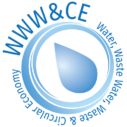Actions
The results listed below are to be achieved by carrying out the following activities.
In addition, creation and coordination of concepts for the development, evaluation and implementation as well as development of examination regulations for all eighteen educational measures of the project.
1. Work Package 2 Further Preparations
Analyses of economic development, demography, education and labor markets in the Baltic Sea countries as well as qualification needs in the Green Economy.
| Result 2.1: Analyses of economic development, education and labor markets in the Baltic Sea countries |
| Result 2.2: Green Competences in Small and Medium Enterprises |
| Result 2.3: Concepts for the implementation, evaluation and acceptance of examinations for all educational measures |
2. Work Package 3 Implementation and realization of Skills Alliance and foundation of Center of Competence
A Skills Alliance “Technologies and Management of Water, Wastewater, Waste and Cradle to Cradle” will be established with 11 partners from 7 EU countries. This Skills Alliance will be extended by 74 education and labor market actors from 13 countries, which will be involved as associated partners in the project implementation. A curriculum for a train the trainer program for sector specific skills will be developed, tested, evaluated and finalized. In the future, this program will be carried out by universities and colleges on an ongoing basis so that qualified trainers are available in sufficient numbers in all Baltic Sea countries. A cooperative Center of Competence “Eco Innovation” will be developed and founded to continue the work of the Skills Alliance on a permanent basis.
| Result 3.1: Skills Alliance |
| Result 3.2: Tested curricula and teaching materials for a Train the Trainer program |
| Result 3.3: Center of Competence “Eco Innovation” |
3. Work Package 4 Implementation and realization of vocational training
The aim is to develop and test a programme with six different additional trainings that can be attended by stronger learners during or directly after their regular vocational training. The implementing educational institutions may offer and implement one, several or all the trainings, depending on their needs or regional conditions.
| Result 4.1: Dual system of vocational training |
| Result 4.2: Qualification program for strong learners |
| Product 4.21 A Technologies water supply |
| Product 4.22 B Technologies Water Saving |
| Product 4.23 C Greywater and rainwater utilisation technologies |
| Product 4.24 D Decentralised wastewater treatment technologies |
| Product 4.25 E Fundamentals of the circular economy |
| Product 4.26 F Systemic solution-oriented consulting |
| Product 4.27 Evaluation of Trainings A – F |
4. Work Package 5 Implementation and realization of further vocational training
Seven further vocational training courses on technologies, management and the transfer of best practices are to be developed and tested, each consisting of 2 – 3 workshops of 15 hours each and intermediate phases of self-learning in the company. The training courses are aimed at owners, managers and/or specialists of SMEs. The implementing educational institutions can offer and carry out one, several or all further training courses, depending on their needs or regional conditions.
| Result 5.1: Tested curricula and teaching materials for seven continuing education seminars |
| Product 5.11 A Preparation and management of SMEs for work in the Green Economy |
| Product 5.12 B Waste reduction and recycling management |
| Product 5.13 C Wastewater treatment and recycling management |
| Product 5.14 D Water supply and water saving |
| Product 5.15 E Cradle to Cradle in SME |
| Product 5.16 F Energy generation from wastewater and waste |
| Product 5.17 G Circular disposal of water |
| Product 5.18 Evaluation Concept and Evaluation Report |
| Product 5.19 Development projects |
| 5.2 Coordinated integration program for the unemployed |
5. Work Package 6 Implementation and Realisation Higher Education
Four study modules on technology, management and best practice are to be developed and tested, each aimed at students of relevant Bachelor’s programmes. The tests are to take place within the framework of existing Bachelor‘s programmes (e.g. as facultative courses). Depending on their needs or regional conditions, universities/universities of applied sciences can offer and carry out one, several or all modules.
| Result 6.1: Curricula of existing dual Bachelor’s degree programs |
| Result 6.2 Curricula for four modules for integration into bachelor’s degree programs |
| Product 6.21 Module A Management & Technologies of the Water and Wastewater industry |
| Product 6.22 Module B Waste management & technologies |
| Product 6.23 Module C Management & technologies of Circular Economy |
| Product 6.24 Module D Management of sustainable economic activity |
| Product 6.25 Evaluation Concept and Evaluation Report |
| Result 6.3: Solutions for manageable R&D tasks of SMEs |
6. Work Package 7 Quality Assurance
Quality assurance for all educational measures developed in the project
Quality assurance for the transfer process and implementations
Quality assurance for the cooperation in the Skills Alliance and the Centre of Competence
Quality assurance for project implementation
| Result 7: Four quality plans |
7. Work Package 8 Evaluations and Assessments
All results of the evaluations of the training measures as well as the quality assurance will be evaluated and a summary report will be prepared.
| Result 8 Result report of all evaluations and assessments |
8. Work Package 9 Dissemination and use of project results
A communication and dissemination plan is prepared for each partner. All project results will be transferred in writing and in person to all project partners and to 74 associated partners, who will receive individual implementation advice according to their needs. In addition, a set of dissemination activities will be carried out. In addition, creation and publication of 12 result videos.
| Result 9.1: Transfer of all educational measures |
| Result 9.2: Measures of further dissemination |
| Result 9.3: Manual |
